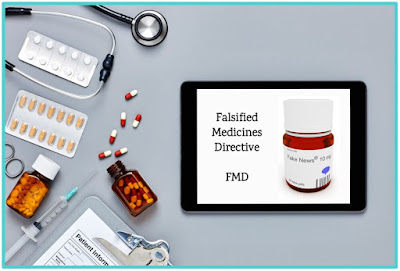Here are the topics covered:
- Explanation of the PHEIC for Polio and the latest news
- Detail about the temporary recommendations and what your travellers need to know
- Details about the ICVP and how to obtain them
- Details about who to charge for a polio containing vaccine
1. Explanation of the PHEIC for Polio and the latest news
A Public Health Emergency of International Concern (PHEIC) is a formal declaration made by the World Health Organization and one was called regarding polio in May 2014. As a result, the Emergency Committee (EC) meets every three months under the International Health Regulations (2005) (IHR) to review the situation regarding the international spread of polio virus. The intent is to stop polio being exported from these countries.
Polio will eventually be eradicated, but for now it's about controlling numbers of cases of wild polio virus (WPV) and also circulating vaccine derived polio virus (CVDPV). There's a map which illustrates the progress although in 2019, numbers increased rather than declined. This data is on the Polio Global Eradication Initiative site which has some excellent information explaining the situation, so maybe take the opportunity to look around.
The EC meets every 3 months. The latest meeting was held on the 11th December 2019, then posted on the WHO website on 20th December. Updates are then subsequently put onto the NaTHNaC (TravelHealthPro) and TRAVAX websites to inform you about this and any other polio information such as cases of CVDPV occurring in other countries.
2. Detail about the temporary recommendations and what your travellers need to know
This latest meeting named the following countries where implementation of the WHO Temporary Recommendations regulation are currently required. These are Afghanistan, Angola, Benin, Central African Republic (CAR), Chad, Cote d’Ivoire, Democratic Republic of Congo (DR Congo), Ethiopia, Ghana, Nigeria, Pakistan, Philippines, Togo and Zambia.
Please note the countries involved often change from one meeting to another so this is the situation at the time of writing this blog.
So what do you need to do as a travel health advisor seeing a traveller going to one of these countries?
- If your traveller is going to one of the destinations for LONGER THAN 4 WEEKS they should be asked to provide evidence of having received polio vaccine IN THE LAST 12 MONTHS when they leave the country
- This evidence has to be produced on an International Certificate of Vaccination or Prophylaxis (ICVP).
- If they can't provide this, they may be given oral polio vaccine immediately on exit and provided with a certificate - all free of charge.
- For most travellers this is FINE but because the vaccine given will be oral polio vaccine (OPV) which is a live vaccine, we wouldn't want certain groups to have it e.g. a pregnant woman, someone who is immunosuppressed (see more detail below).
- Therefore certain groups are advised to be vaccinated prior to departure.
3. Details about the ICVP and how to obtain them - this is guidance if working in England
These need to be obtained by telephoning Communisis on 0191 201 50126 because the online provision via NaTHNaC is no longer available. See the poster below. Or you could order them from the WHO online shop here.
- Guidance on how to complete the certificate is on NaTHNaC here
- You are able to charge for just the certificate in a GP setting - the certificate booklet costs just over £1 per unit so could add on a modest amount to allow for the work involved
- NaTHNaC does not advise writing yellow fever and poliomyelitis on the same certificate - one ICVP per disease should be given - reference on the guidance page here
4. Details about who to charge for a polio containing vaccine
If you work in Scotland then the advice on TRAVAX allows anyone who needs the vaccine and ICVP for this situation to have it on the NHS if they live in Scotland and the Scottish Government funds it.
If you work in England the guidance is different and you must follow the information on NaTHNaC. This information will be found in the vaccine advice for polio in the relevant country page information. Polio vaccine will need to be given within Revaxis or Repevax (depending on age of traveller) but NOT ALL travellers can have this on the NHS.
If working in England, therefore following the NaTHNaC advice, who can you provide the vaccine to as an NHS provision?
- A person who hasn't yet completed their UK schedule and doesn't have 5 doses recorded
- A person who hasn't had a Revaxis booster in the last 10 years for travel purposes
- A pregnant woman
- A person who is immunosuppressed and their household contacts
- A person travelling to a setting with extremely poor hygiene (e.g. refugee camps) or likely to be in close proximity with cases (e.g. healthcare workers)
- A traveller visiting for 6 months or more
All other travellers seen in a GP surgery in England would NOT be entitled to vaccine as an NHS provision but receiving oral polio vaccine on exit from the country should present no problem.
If a traveller is unhappy with this advice, then they could access a polio containing vaccine, but need to obtain this from a private travel clinic and pay for both the vaccine and the ICVP. A GP surgery cannot provide this privately and charge for the vaccine.
I'm sorry I don't know the charging situation in Wales and Northern Ireland - if you do, perhaps you could e mail me to let me know and I'll update the blog.
To see the FAQ on charging for travel vaccines on my website - see here.














